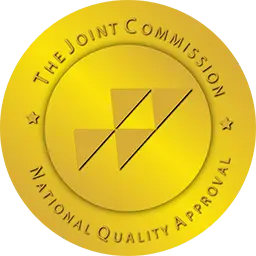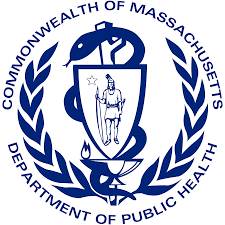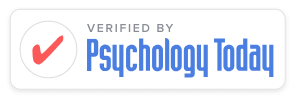Attention Deficit Hyperactivity Disorder (ADHD) is a common neurodevelopmental condition affecting millions of teens worldwide, characterized by patterns of inattention, hyperactivity, and impulsivity. For parents navigating this landscape, one of the pressing questions is: “Are ADHD medications safe for teens?” In this blog post, we’ll delve into the topic of ADHD medications for teens, exploring their safety, benefits, potential risks, and the role of comprehensive treatment strategies.
Understanding ADHD Medications for Teens
ADHD medications for teens primarily fall into two categories: stimulants and non-stimulants. Stimulants, such as methylphenidate (Ritalin) and amphetamines (Adderall), are the most widely used and often the first treatment line. They work by enhancing the levels of certain neurotransmitters in the brain, helping improve concentration and reduce impulsive behaviors.
Non-stimulant medications, such as atomoxetine (Strattera) and guanfacine (Intuniv), provide alternatives for those who may not respond well to stimulants or experience significant side effects. These medications offer another way to manage ADHD symptoms effectively.
Evaluating the Safety of ADHD Medications
The question “Are ADHD medications safe for teens?” is multifaceted and requires considering various factors:
1. Efficacy and Benefits
Numerous studies indicate that ADHD medications can be highly effective for teens. These medications often lead to better academic performance, improved social interactions, and enhanced self-esteem by mitigating core symptoms. For many teens, ADHD medications are crucial to their ability to function effectively in daily life, making these treatments a compelling option for parents seeking interventions.
2. Potential Side Effects
While ADHD medications for teens are generally safe when prescribed and monitored by healthcare professionals, they are not without potential side effects. Common side effects of stimulants include decreased appetite, sleep difficulties, and increased heart rate. Non-stimulant medications might cause fatigue or mood changes. Monitoring and open communication with healthcare providers can help manage these side effects.
3. Long-term Considerations
The long-term use of ADHD medications is a common concern for parents. Current research suggests that there are no lasting harmful effects on brain development when ADHD medications are taken as prescribed during the teen years. Instead, proper management of ADHD symptoms can prevent adverse long-term outcomes associated with unmanaged ADHD, such as academic failure and social issues.
4. Addressing Misuse and Dependence
One crucial aspect of considering ADHD medications for teens is the potential for misuse or dependence, particularly with stimulants. Clear communication about the purpose and benefits of the medication, as well as supervised administration, can reduce the risk of misuse.
Moreover, parents should ensure that prescription guidelines are strictly followed and watch for any changes in behavior that might indicate dependence.
5. Non-Medication Therapies
It is essential to acknowledge that medication is just one piece of the ADHD treatment puzzle. Behavioral therapy, organizational coaching, and educational support are vital in a comprehensive treatment plan. Integrating these therapies can amplify the benefits of medication and address ADHD symptoms more holistically.
Assessing Individual Suitability
The decision to medicate your teen for ADHD is a profoundly personal one, and not every teen diagnosed with ADHD will necessarily require medication. A thorough evaluation by healthcare professionals allows for developing tailored treatment plans considering each individual’s unique needs and conditions.
This evaluation often includes a detailed history, physical examinations, and mental health assessments to pinpoint the type and severity of ADHD symptoms. Collaborating with healthcare providers to create an adaptive and responsive treatment strategy is essential.
The Role of Parents and Caregivers
Your involvement in the treatment process is crucial as a parent or caregiver. Open communication with your teen about their experiences with medication will help you understand what is working and what needs adjustment. Encourage your teen to express concerns about their treatment, including side effects or efficacy.
Also, keep regular appointments with your teen’s healthcare provider to monitor progress and adjust the treatment plan. Your advocacy and support will help your teen succeed in managing ADHD.
The question “Are ADHD medications safe for teens?” doesn’t come with a one-size-fits-all answer. ADHD medications, when used appropriately and as part of a comprehensive treatment approach, are generally safe and effective for many teens. Understanding the potential benefits and risks, engaging in thorough evaluations, and emphasizing collaborative communication with healthcare providers ensure your teen receives the best support possible.
Professional Adolescent ADHD Treatment in Woburn, Massachusetts
At Crown Adolescent Mental Health in Woburn, MA, we provide comprehensive, professional treatment for adolescents with ADHD, helping them develop essential skills to improve focus, emotional regulation, and executive functioning. ADHD can impact a teen’s ability to succeed in school, maintain relationships, and complete daily responsibilities, often leading to frustration, low self-esteem, and behavioral challenges. Our specialized ADHD treatment program is designed to address these difficulties through personalized therapy, structured interventions, and family support to ensure long-term success.
We use evidence-based approaches, including Cognitive-Behavioral Therapy (CBT), Behavioral Modification Strategies, and Executive Functioning Coaching, to help teens develop healthy coping mechanisms and manage their symptoms effectively. Our program integrates individual therapy, group counseling, and family education to support teens and their caregivers and create an environment that promotes focus, organization, and emotional well-being. Our team of experienced psychiatrists carefully evaluates and monitors adolescents who may benefit from medication management to ensure the best treatment outcomes.
At Crown Adolescent Mental Health, we recognize that ADHD affects every aspect of a teen’s life, from academics to social interactions and emotional health. That’s why we offer a comprehensive, structured approach that empowers teens to gain confidence, build stronger relationships, and develop the skills necessary for success. If your teen is struggling with inattention, impulsivity, or hyperactivity, our professional ADHD treatment program in Woburn can provide the guidance and support they need to thrive. Contact us today to learn more about our personalized treatment options.
Get Effective ADHD Treatment For Adolescents in Woburn, Massachusetts, Today
At Crown Adolescent Mental Health, we know navigating ADHD medication decisions can be challenging. We are here to support you and your teen through personalized and comprehensive mental health treatment programs in Massachusetts. Our experienced professionals help assess, guide, and ensure safe and effective ADHD management for your teen. Reach out to us today at Crown Adolescent Mental Health and take the next step toward comprehensive care and a brighter future for your teen. Contact us now to learn more.



